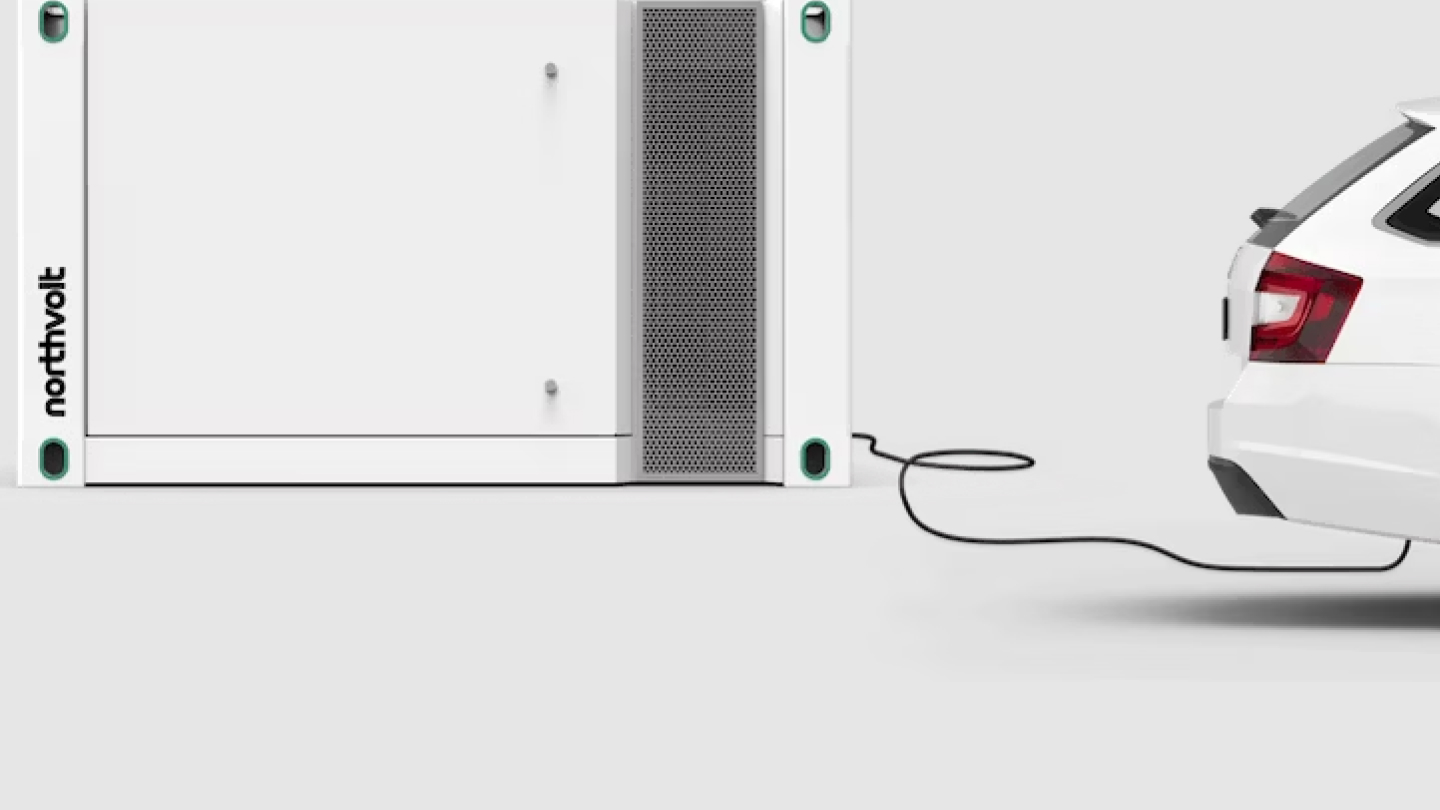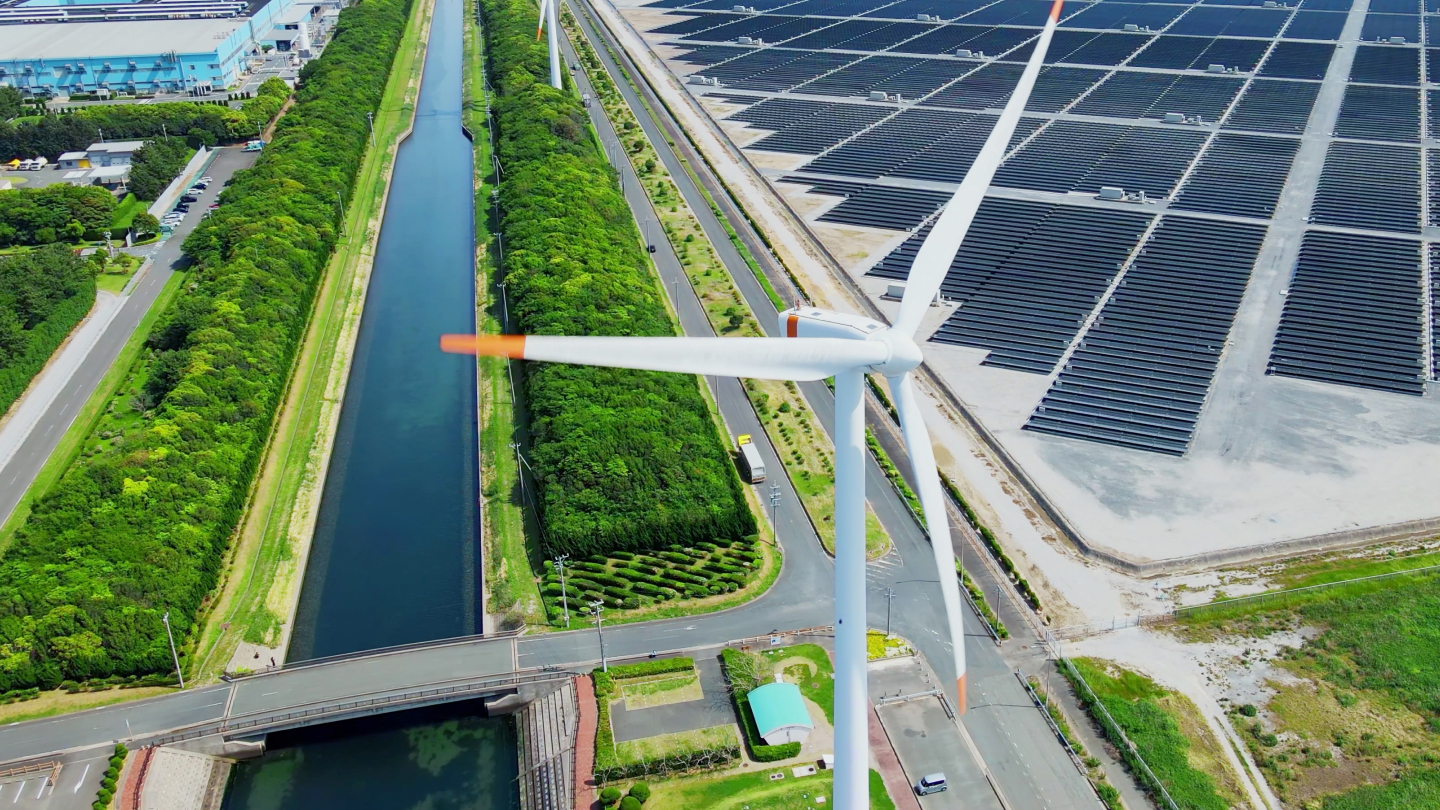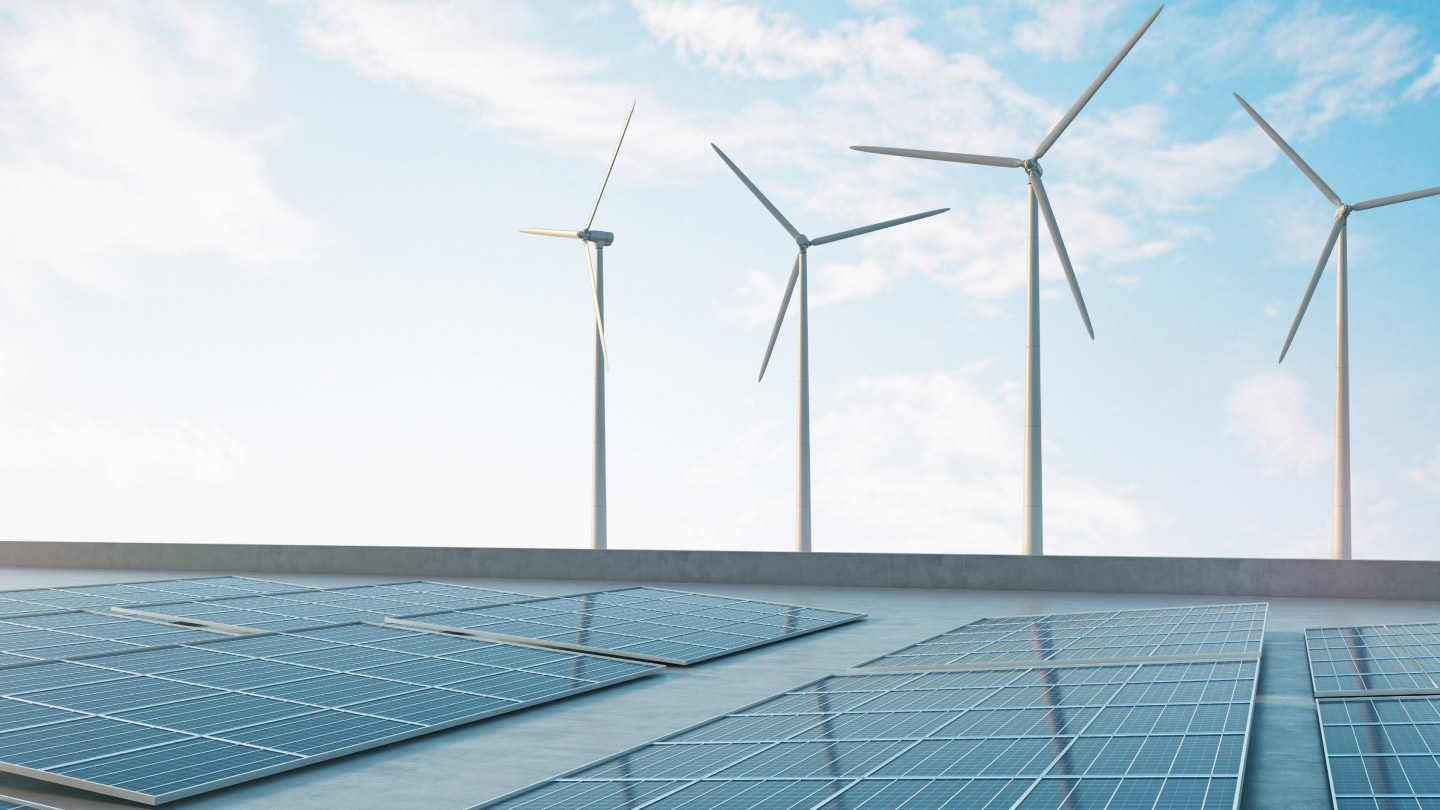
In Europe’s largest ever green loan, J.P. Morgan has co-led a $5 billion debt deal for Swedish battery maker Northvolt, a key supplier to BMW, Volvo and Volkswagen. This comes amid booming investor appetite for green debt and the trend for multinational companies to build components closer to home. Equally, it supports J.P. Morgan’s goal of financing and facilitating $1 trillion of green initiatives by 2030.
Northvolt, Europe’s only large homegrown electric battery maker, is renowned for its cutting-edge battery technology and green credentials. In November, the company announced a design for a new sodium-ion battery, which could help to reduce the region’s reliance on raw materials sourced from China, including lithium, nickel and graphite. It is believed to be the first battery made completely free from these critical raw materials.
The $5 billion loan, arranged by the firm and a group of other banks, will enable Northvolt to boost battery production at plants in Sweden, Poland, Germany, the U.S. and Canada.
“Northvolt is a great example of a company taking action to address the new demands on industry, with the simultaneous positive impact on employment and development.”

Jonas Wikmark
Co-Senior Country Officer & Co-Head of Investment Banking for the Nordics, J.P. Morgan
Supporting green technology
Northvolt was founded in 2015 by two former Tesla executives with the ambition to build the world's greenest battery for electric vehicles and “to make oil history.” J.P. Morgan has supported the company for many years, including helping with its latest multibillion convertible bond raise to support factory expansion — the second-largest deal in the climate tech sector in 2023.
“The amount of capital raised by Northvolt to date accounts for a meaningful part of foreign direct investment into Sweden. It is a great example of a company taking action to address the new demands on industry, with the simultaneous positive impact on employment and development of Northern Sweden,” said Jonas Wikmark, Co-Senior Country Officer & Co-Head of Investment Banking for the Nordics at J.P. Morgan.
Teams across the Commercial & Investment Bank worked on the deal, including Investment Banking, Markets, Global Corporate Banking, Credit, Infrastructure Finance Advisory and the Export Credit Agency team.
“The success of the deal is a testament to the strong interest in the market around energy transition themes and J.P. Morgan’s commitment to advancing sustainable finance,” said Guri Ormonroyd, Head of Corporate Banking for the Nordics and Netherlands at J.P. Morgan.
The appetite among investors for green assets is surging. The Inflation Reduction Act in the U.S. and similar European initiatives are proving to be a catalyst for investment and are easing financing costs for green projects. In 2023, for the second consecutive year, banks’ fees from green deals outstripped those from fossil fuel debt, according to data compiled by Bloomberg.
“The success of the deal is a testament to the strong interest in the market around energy transition themes.”

Guri Ormonroyd
Head of Corporate Banking for the Nordics and Netherlands, J.P. Morgan
$2.5 trillion for the transition
Challenges remain in funding the transition to net zero. By 2050, the total amount of capital needed to facilitate the shift is estimated to be around $150 trillion.
Speaking at J.P. Morgan’s CEO Forum last year, Northvolt Chairman Jim Snabe called on businesses to change their mindset when it comes to tackling climate change. ESG is not a cost but an opportunity for companies to differentiate themselves, he said, adding that “courageous leadership” is needed to bring greater cooperation and scale to innovations.
As one of the world’s leading financiers, J.P Morgan has a major role to play in helping countries and companies to decarbonize.
Among headline targets, the firm aims to finance or facilitate $2.5 trillion of investment toward sustainable development by 2030, including $1 trillion for green initiatives.
Steel production with 95% lower emissions
In another big win for the team in Sweden, J.P. Morgan acted as exclusive financial advisor to Altor on H2 Green Steel’s €1.5 billion capital raise to help finance the world’s first large-scale green steel plant.
The new facility will be capable of producing steel with 95% lower emissions than traditional blast furnace technology. Steelmaking is one of the biggest emitters of CO2 globally, with total greenhouse gas emissions from the sector accounting for 7-9% of fossil fuel emissions.
H2 Green Steel aims to begin production in 2025, with plans to produce 5 million tons of nearly fossil-free steel by 2030.
Related insights
-

Investment Banking
Investment Banking
Providing investment banking solutions, including M&A, capital raising and risk management, for a broad range of corporations, institutions and governments.
-

Banking
It’s time to solve the energy transition’s project development problem
September 14, 2023
On the road to COP28, closing the project preparation gap should take center stage.
-

ESG
Setting the low-carbon transition in motion
January 22, 2024
Discover how J.P. Morgan supports clients along the journey toward a low-carbon economy — every step of the way.
This material (including market commentary, market data, observations or the like) has been prepared by personnel in the Investment Banking Group of JPMorgan Chase & Co. It has not been reviewed, endorsed or otherwise approved by, and is not a work product of, any research department of JPMorgan Chase & Co. and/or its affiliates (“J.P. Morgan”).
Any views or opinions expressed herein are solely those of the individual authors and may differ from the views and opinions expressed by other departments or divisions of J.P. Morgan. This material is for the general information of our clients only and is a “solicitation” only as that term is used within CFTC Rule 1.71 and 23.605 promulgated under the U.S. Commodity Exchange Act.
RESTRICTED DISTRIBUTION: This material is distributed by the relevant J.P. Morgan entities that possess the necessary licenses to distribute the material in the respective countries. This material is proprietary and confidential to J.P. Morgan and is for your personal use only. Any distribution, copy, reprints and/or forward to others is strictly prohibited.
This material is intended merely to highlight market developments and is not intended to be comprehensive and does not constitute investment, legal or tax advice, nor does it constitute an offer or solicitation for the purchase or sale of any financial instrument or a recommendation for any investment product or strategy.
Information contained in this material has been obtained from sources believed to be reliable but no representation or warranty is made by J.P. Morgan as to the quality, completeness, accuracy, fitness for a particular purpose or noninfringement of such information. In no event shall J.P. Morgan be liable (whether in contract, tort, equity or otherwise) for any use by any party of, for any decision made or action taken by any party in reliance upon, or for any inaccuracies or errors in, or omissions from, the information contained herein and such information may not be relied upon by you in evaluating the merits of participating in any transaction. All information contained herein is as of the date referenced and is subject to change without notice. All market statistics are based on announced transactions. Numbers in various tables may not sum due to rounding.
J.P. Morgan may have positions (long or short), effect transactions, or make markets in securities or financial instruments mentioned herein (or options with respect thereto), or provide advice or loans to, or participate in the underwriting or restructuring of the obligations of, issuers mentioned herein. All transactions presented herein are for illustration purposes only. J.P. Morgan does not make representations or warranties as to the legal, tax, credit, or accounting
treatment of any such transactions, or any other effects similar transactions may have on you or your affiliates. You should consult with your own advisors as to such matters.
The use of any third-party trademarks or brand names is for informational purposes only and does not imply an endorsement by JPMorgan Chase & Co. or that such trademark owner has authorized JPMorgan Chase & Co. to promote its products or services.
J.P. Morgan is the marketing name for the investment banking activities of JPMorgan Chase Bank, N.A., J.P. Morgan Securities LLC (member, NYSE), J.P. Morgan Securities plc (authorized by the Prudential Regulation Authority and regulated by the Financial Conduct Authority and the Prudential Regulation Authority), J.P. Morgan SE (Authorised as a credit institution by the Federal Financial Supervisory Authority (Bundesanstalt für Finanzdienstleistungsaufsicht, BaFin) and jointly supervised by the BaFin, the German Central Bank (Deutsche Bundesbank) and the European Central Bank (ECB)), J.P. Morgan Securities Australia Limited (ABN 61 003 245 234/AFS Licence No: 238066 and regulated by Australian Securities and Investments Commission) and their investment banking affiliates. J.P. Morgan Securities plc is exempt from the licensing provisions of the Financial and Intermediary Services Act, 2002 (South Africa).
For Brazil: Ombudsman J.P. Morgan: 0800-7700847 / ouvidoria.jp.morgan@jpmorgan.com
For Australia: This material is issued and distributed by J.P. Morgan Securities Australia Limited (ABN 61 003 245 234/ AFS Licence No: 238066) (regulated by ASIC) for the benefit of “wholesale clients” only. This material does not take into account the specific investment objectives, financial situation or particular needs of the recipient. The recipient of this
material must not distribute it to any third party or outside Australia without the prior written consent of J.P. Morgan Securities Australia Limited.
© 2024 JPMorgan Chase & Co. All rights reserved.